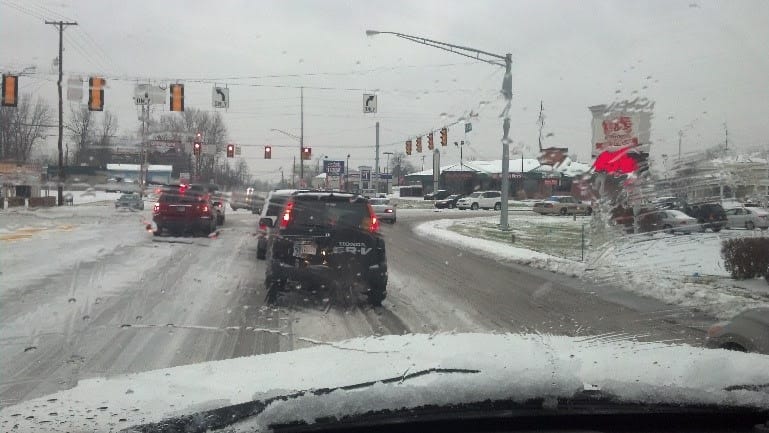- Free Consultation: (844) 268-7775 Tap Here to Call Us
Winter Premises Liability in Indiana

Though southwestern Indiana has dodged snow so far, temperatures are falling and icy conditions increasing. Wintry conditions inevitably lead to slips and falls, some of which will lead to serious head, neck and back injuries, broken bones, and muscle and ligament tears, strains and sprains.For many who slip and fall, their first emotion is embarrassment and their first instinct is to blame themselves. Also, many premises owners will be quick to claim they cannot be at fault for folks who venture out into wintry conditions and happen to slip and fall. Accordingly, for many guests and premises owners alike there is a perception that a premises owner will not be liable when a guest does slip and fall in wintry conditions. Reaching such a conclusion without consideration of Indiana law and surrounding circumstances could be costly.
Indiana law on the hazards presented by the natural accumulation of snow and ice is clear:
a landlord does have a duty of reasonable care that the common ways and areas, or areas over which he has reserved control, are reasonably fit and that hazards created through a natural accumulation of ice and snow are not beyond the purview of that duty.
Absent a business or homeowner gating their premises and posting no-trespassing signs, they have a duty to protect foreseeable visitors from harm. For more than 40 years Indiana has recognized a broad duty:
The occupier must not only use care not to injure the visitor by negligent activities, and warn him of latent dangers of which the occupier knows, but he must also inspect the premises to discover possible dangerous conditions of which he does not know, and take reasonable precautions to protect the invitee from dangers which are foreseeable from the arrangement or use. The obligation extends to the original construction of the premises, where it results in a dangerous condition.
The foregoing does not suggest premises owners are strictly liable to someone who slips and falls and suffers an injury on their property. However, the inquiry will be fact-sensitive and Indiana’s law of modified comparative fault will apply. This means that if a jury does not find the guest 51% or more at fault under the circumstances, the guest will be entitled to recover if they prove to a jury’s satisfaction that their injuries were caused by the fall. If a premises owner in fact contributed to conditions leading to an unnatural accumulation of snow and ice, the chance of the premises owner escaping significant liability is slim.














